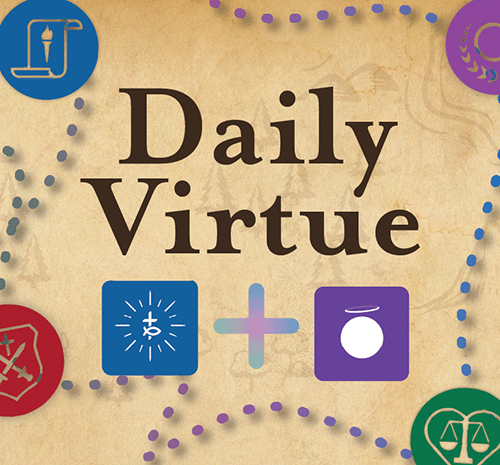The Importance of Lectio Divina
ewtn, Family, Individual, Learn Virtue, Mind & Heart, Podcasts, School, Teach Virtue
I studied at the University of Notre Dame for my undergraduate degree and went on to Franciscan University and Catholic University for my master’s. Later on, I eventually finished my doctorate in biblical theology at the Gregorian University in Rome. Currently, I teach scripture at Sacred Heart Major Seminary in Detroit to seminarians, lay students, and even priests during our summer program.
I thank God for Pope Benedict: he has a great passion for the word of God, and he is one of the greatest biblical scholars we have ever had. He wrote the apostolic exhortation, Verbum Domini, exhorting Catholics to become familiar with the word of God and to rediscover the ancient practice of Lectio Divina. Many Catholics, if they have heard of it at all, think of Lectio Divina as something that monks do in monasteries or people with extra leisure time do in their spare time. This isn’t totally accurate, and Pope Benedict says that this is something that all Catholics, even all Christians, are called to do. Lectio Divina is simply a way of reading scripture and conversing with the Lord, because scripture is unlike any other document the church gives us. We have wonderful documents like The Catechism, The Papal Encyclicals, and the documents of Vatican II, and they all teach the truth to us in a trustworthy way.
Scripture is the word of God, authored by God. When we read scripture, God speaks to us personally. It is a living word, and it is a word that has power unlike any other. As Pope St. Gregory the Great said, “It has this amazing quality; the Bible has this quality that a mouse can wade in and an elephant can swim in.” An elephant, a scholar, or a brilliant person who has studied scripture all their life can read the same story that they have already read 100 times in the Gospel and find new depths in it. On the other hand, the simplest person, a new Christian, or a child can read a story in the gospel, understand it in its simplicity, and hear God speaking to them as a Heavenly Father. This is why I am so thrilled that Lumen Ecclesiae Press has created these resources to teach both children and adults how to do Lectio Divina. Children are certainly capable of it, and now they have the resources to achieve it.

First of all, for a catechist or a teacher, whose aim is to teach children to do Lectio Divina and to get children to fall in love with the word of God, I would advise beginning with your own relationship with the Lord in scripture. Try to have your own personal time of prayer and Lectio Divina every day. Make it an unbreakable appointment with the Lord, your creator, the one who loves you. Just start with one book of the Bible on your own and take a little bit every day and meditate on it. If you go through the four steps of Lectio Divina, then you really have a personal witness to share with the children.
Regarding the children, I think teachers should have a very high level of confidence in the children’s ability to have a personal encounter with Jesus and to hear Him speak to them in prayer. Even from children, I have heard amazing pearls of wisdom, because they actually are going to the Lord in prayer. Because they do not have as much intellectual noise going on, they are better at listening to and hearing the Lord than we are. Whether it means lighting candles, playing soft music, having each child in their own space, and/or freeing them from distractions as much as possible, make sure you are giving children an opportunity to have that quiet time with the Lord. Then, after you lead them through and teach them Lectio Divina, ask them to share what the Lord has spoken to them. You might be amazed by what you hear.
We would love to stay in touch. Make sure to subscribe below so you can receive our articles, podcasts, and videos.

